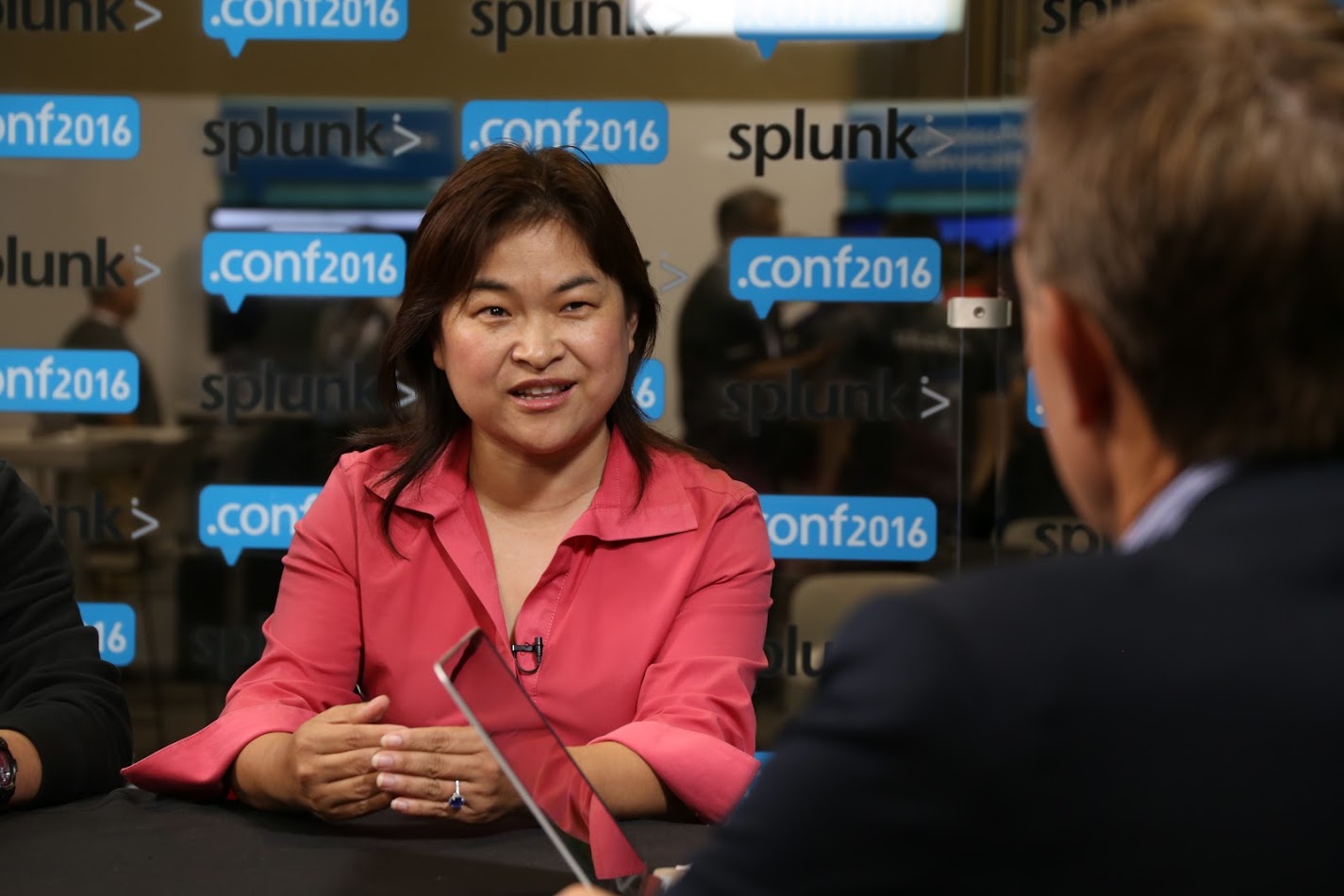 NEWS
NEWS
 NEWS
NEWS
 NEWS
NEWS
As the first day of Splunk.conf 2016 was winding down, the conversation turned to security and how opening up data actually keeps it safer. And one of Splunk, Inc.’s missions is to unify many IT enterprise technologies to enable collaboration while using the data to provide visibility into cyber-threat challenges.
To talk about Splunk’s new Adaptive Response initative, Haiyan Song, senior VP of Security Markets at Splunk, and Monzy Merza, director of Security Research, chief security evangelist at Splunk, joined cohosts John Walls (@JohnWalls21) and John Furrier (@furrier), cohosts of theCUBE, from the SiliconANGLE Media team.
This week, theCUBE highlights Haiyan Song in our “Women in Tech” feature.
Walls began by asking Song to explain Adaptive Response. He wanted to know what it’s about and how it has evolved. Song provided her assessment of the the initiative.
“Adaptive Response is an initiative that we announced at RSA [Conference] this year, and it is really the first Splunk led-industry initiative,” she explained. “The key tenants of that … is sharing, coordinating and automating in a way that we harness the power of our ecosystem and harness the power of all the security technology working together. As we all know, we cannot fight the war on each of our own islands.”
Furrier mentioned that a top conversation point with guests who visit theCUBE is security. He also stated that it is a boardroom conversation. He asked Song about what she has noticed with Splunk customers, and she responded by talking about what the customer wants.
“Adaptive Response also came from customers wanting a security ecosystem to work together, wanting a security solution that comes integrated so they don’t have to go and do all the hard work of putting them together and risk that they don’t work well together,” Song explained.
She continued: “From a Board-level perspective, we totally see that, the CSOs, the CIOs, the CROs, it can be many different things, but it all adds up to how can you translate the security incidents and the possibilities of having those incidents to how it’s going to impact my business; the reputation, the revenue, the customers. And from our product perspective along the way, we have always taken a risk-based approach. … How do we blend in the business risk that is right in front of the analyst’s eyes, so when they take action, they are guided by the priority of how it’s going to impact the business?”
Furrier spoke to the notion of putting a value on data and how it is becoming an essential asset for companies. Song noted that when selling security to talk about it in terms of opportunities instead of threats.
“When I heard you talking about freeing the data, I love that concept. For us, it’s the more you can put this in front of your users … the more they can look into it to get valuable insights, the more they can use it,” Song stated. “One of our themes is: Security should become the enabler for the business, and when you go to the Board, when you go and ask for an investment, it’s not going to be about this [security] is going to be bad if you don’t invest; it’s more about if I have this data, if I have this visibility, I can enable others to do better. I can provide this service, and this service would render revenue for a company. So I love the concept of free the data and let the data go and speak. We have something we call ‘listen to the data,’ and I think that is great.”
Furrier pondered how you can operationalize data and prove its value. Song simply noted that it is an economic driver.
“I don’t know how to put a dollar amount to it, but I have an analogy,” she said. “Through the data revolution the industry is going through, part of it is energy, part of it is oil, but it is moving toward data being the new fuel in the economy.”
Watch the complete video interview below, and be sure to check out more of SiliconANGLE and theCUBE’s coverage of Splunk.conf 2016.
THANK YOU